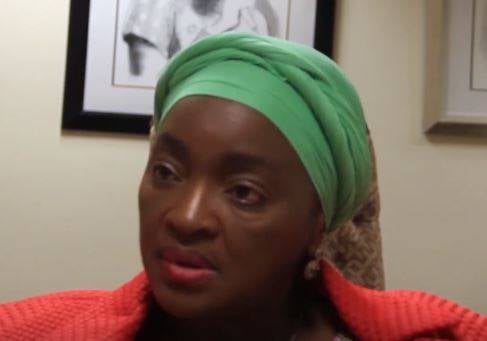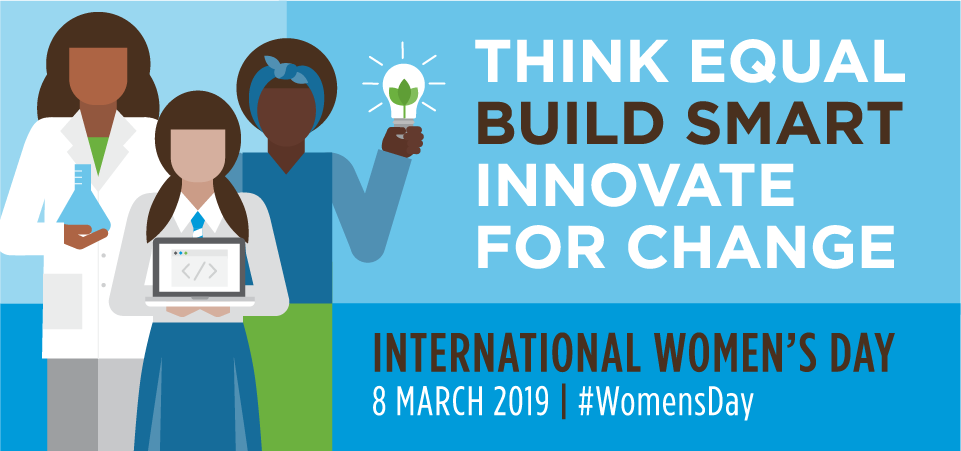
Bathabile Dlamini believes that, despite vociferous criticism, her department of women is doing as much as it can to improve the lives of women in South Africa.
Speaking to City Press ahead of International Women’s Day, Dlamini was at pains to express that the department’s mandate was to develop a framework for policies related to the upliftment of women which identifies gender gaps, not to implement them. The department works with other departments, and it is them who need to close these gender gaps.
To her critics
Dlamini is adamant that part of the problem is that there is a gap between policy development and policy implementation, because these policies for women are just not being prioritised by government. She also believes the media are partly to blame for this discrepancy.
“When I came into the department I found out that there is legislation that came up that went through Parliament, but that there wasn’t any follow-up thereafter. It was about gender equality.”
The Women Empowerment and Gender Equality Bill of 2013 which was passed in the National Assembly and passed to the National Council of Provinces for consultation, for consultation, called for at least 50% representation of women in decision-making structures. The bill eventually lapsed after the parliamentary term had ended.
Dlamini was critical of those leaders in government who “forget about women’s issues” once they are in office.
“I know with all our leaders when they come in, they become very sensitive to the issues of women but as time goes on they become swallowed by all other issues and leave out the most important constituency for a vibrant country,” she said.
On the media
“I’ve always known that when women have a good story [to tell], the media does not prioritise it. The media is the world of men, it’s owned by men, and for you sometimes to be up there you have to jostle and sometimes fight. I’m happy that women have come to interview me today. I thought there would be men.
“Even your former editor Ferial Haffajee ... we could have differences with her, but I feel she understands the issues of gender equality. I always felt as much as we had our fights, she had the capacity of putting those aside, and focused on women’s issues and gender issues. Those are the people I respect and differentiate and people who are able to use their spaces to advance the struggle for gender equality.”
Dlamini mentioned, in particular, a project to combat abuse, that she felt did not get the press coverage it should have. The “robot campaign”, which was aimed at educating South Africans towards ending gender-based violence, used a traffic light inspired analogy to highlight the tell-tale signs of healthy and unhealthy relationships
Read: ‘Campaigns fail because of no support’: Dlamini
The importance of International Women’s Day and the challenges that women face
Dlamini argued that a day like International Women’s Day was important for South Africans because it gave them a chance to reflect on the role that women play in society, and that women were often left to raise homes with little to no resources.
The theme for International Women’s Day this year, “think equal, build smart, innovate for change”, puts innovation by women and girls, for women and girls, at the heart of efforts to achieve gender equality.
Dlamini explained that what women faced in South Africa was no different to the challenges that women faced globally, and that the fight for equality needed to happen at all levels in order to ensure a more equal society.
“First, women must always understand that in whatever position [they are in] that when you take over you have to put women first. Second, women generally must know that being in Parliament and being in government is not [automatically an] emancipation of women. There is a lot that needs to be done because the system in our country is based on patriarchy, masculinity and misogyny and therefore when you are the minister of women you can talk a lot but what is important is to do.”
Part of the challenge and the department’s initiatives
In May last year, Dlamini started calling for a gender-inclusive budget from the government to help enforce significant changes.
Read: A gender-blind budget is a far cry from a budget for the future
“We need to ensure that all our programmes have the budget, [it’s] not to say that we have the ministry [and that] it’s enough. Therefore, without a proper budget and funding of our programmes we will never change our conditions.”
She said that there should be “repercussions” for those who do not “implement gender mainstreaming”
“Words are not enough,” she said.
Read: Politicians, know this: Empower women and the entire nation will grow
Zuma and Khwezi
Dlamini, who is a long-standing member of the ANC Women’s League, was voted in as the league’s president in 2015.
In 2005, then deputy president Jacob Zuma was accused of raping Aids activist Fezekile Ntsukela Kuzwayo, known during the subsequent rape trial as ‘Khwezi’ to protect her identity.
Zuma was subsequently acquitted of the rape charges and the league was widely criticised for not doing more to challenge Zuma and support Khwezi.
Dlamini defended the league’s handling of the matter and said that in this case, they had taken a step which they had never done before: they wrote a letter. The letter, presented to Zuma, indicated the seriousness of the matter.
“I [personally] delivered the letter that was from the national executive committee that said we support the victim, Khwezi. He read the letter and said ‘Yebo, Ntombazan, Iwomen’s league has to support women’.”
Dlamini said Zuma took the letter.
“I think he did not take the matter personally, but agreed that it was a very serious matter. The fact that he allowed me to go to his place and he knew that I was bringing that letter to him because I was the secretary-general [of the women’s league] at the time, it was a step that we had never taken before.”
How the justice system fails women
When Cheryl Zondi appeared as a witness in the trial of rape-accused Nigerian Pastor Timothy Omotoso, there was public outrage over the way in which Omotoso’s attorneys questioned her.
Read: Courts are not friendly spaces
Omotoso’s lawyers even went as far as to ask Zondi how deep the penetration was by Omotoso, when she alleged that she had been raped by him.
Dlamini said that this line of questioning was a clear example of how the justice system was failing women. But the trial also demonstrated how the Port Elizabeth community supported the accused, not the female victim.
“The reason Omotoso was arrested in Port Elizabeth is because the case has been reported around where the church is. But the police and magistrates are part of that church. Some deal with protocol, some security, some drivers. Just generally men used to drape their jackets for him to walk on into church.”
In January, a 30-year-old pastor appeared in the Soshanguve Magistrates’ Court, accused of raping young boys at his church.
Dlamini said: “In Soshanguve you have the whole cluster presenting a portrait to the pastor, that has been abusing children and women as well as boys.”
She said this tendency to support the alleged perpetrator instead of the victim indicated a deep problem with society.
“As long as we don’t deal with that attitude that comes from what we do at a community level, bring it to the workplace, and always find women wrong, we won’t be able to deal with the issues of violence against women in court,” she said.
“I think we’ve learnt a lot from Cheryl’s case.”
Where to from here?
Although there was much work that was needed when it came to promoting the issues of women, Dlamini said that the role of a woman could not be undermined any longer. And this respect starts at home, where women “must be given space”.
“When given space [women] do their utmost best, [even if] they always think about the interest of other people. That is why they need ‘me time’. My kids know at home, when I have ‘me time’ they know I don’t want to shout or be angry because by the end of the day I’ll end up being a mess.”
Land
When it comes to the issue of the land, she said women must be at the forefront, and be given access to land, and ownership.
“Women work the land most of the time, but I know that at all times, when conditions change, women are pushed back.”
She said that there was a lot of talk about radical economic transformation, but if it did not involve women, South Africans would always remain poor.
“The women who are hawkers support their families, I would like to see them growing and we must start from those who are already in the field of small business. I want to see more women with jobs so that they also contribute towards the development of the country.”
• Dlamini will be travelling to New York for the 63rd commission on the status of women which is taking place at the United Nations headquarters in New York from March 11 to 22.
| |||||||||||||
| |||||||||||||




 Publications
Publications
 Partners
Partners









